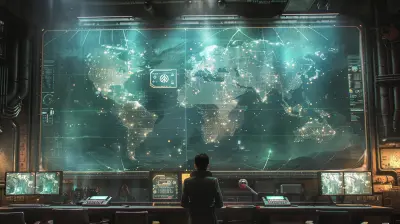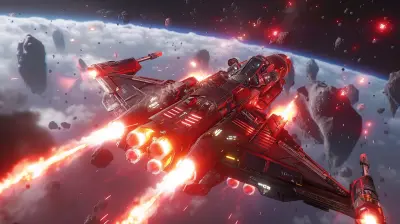The Forgotten Handheld Consoles That Could Have Changed Gaming
6 June 2025
When most people think about handheld gaming, they immediately shout out the Game Boy, the PSP, or maybe even Nintendo Switch. But what if I told you there were other consoles—odd little machines, brave underdogs—that came out swinging with big ideas... and then simply vanished?
These were the devices that had just enough innovation to shake the foundation of portable gaming, yet, due to bad timing, poor marketing, or just plain bad luck, they never got their chance to shine. Today, we're diving into the depths of gaming history to shine some light on the forgotten handheld consoles that could have changed gaming.
So, plug in your nostalgia, grab a snack, and let’s crack open this time capsule.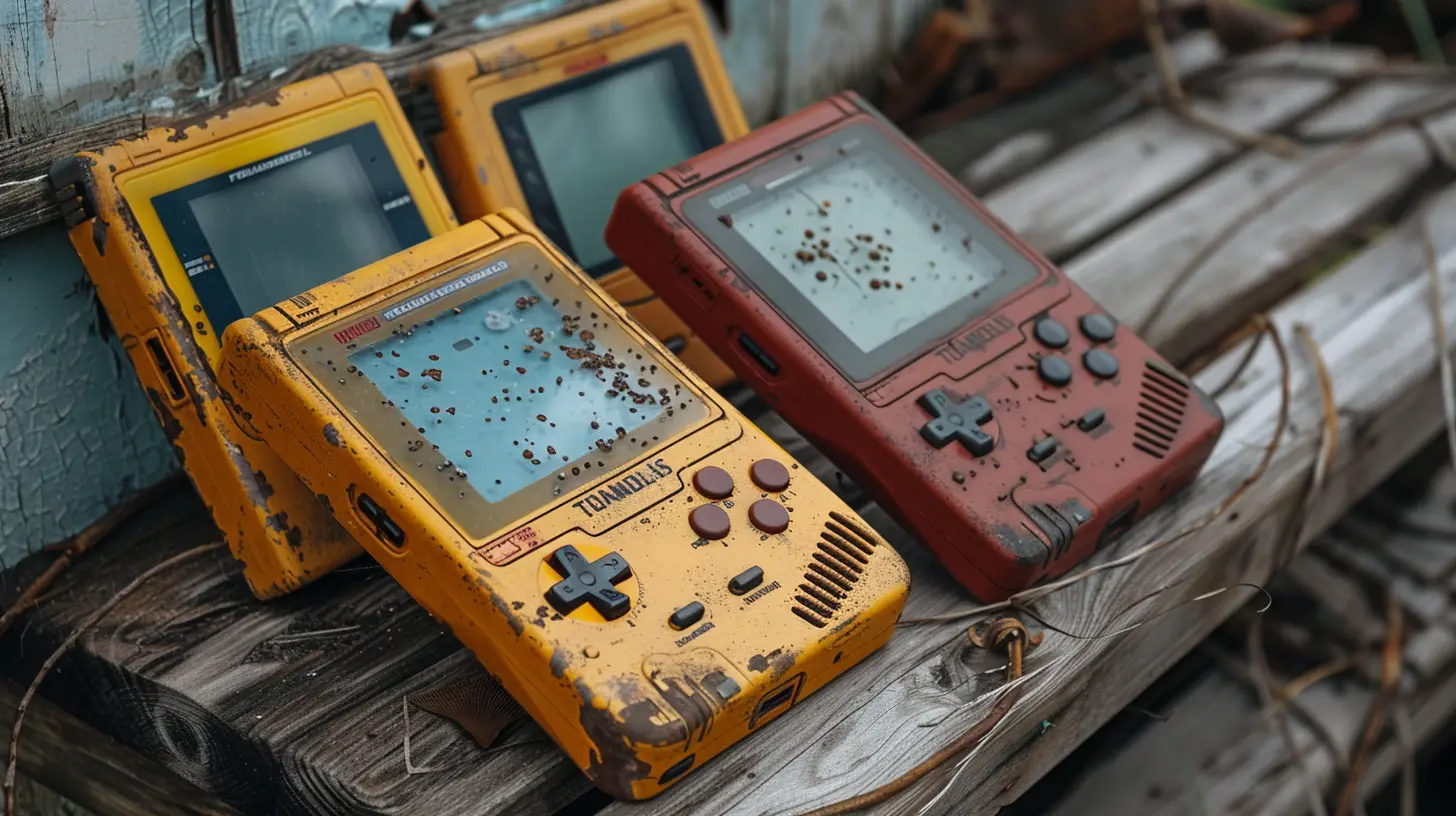
Table of Contents
1. What Makes a Handheld Console "Forgotten"?2. 1. Sega Nomad – Ahead of Its Time, Behind in Battery Life
3. 2. Atari Lynx – The Colorful Misfit
4. 3. Neo Geo Pocket Color – The Underdog Fighter
5. 4. Gizmondo – A Cautionary Tech Tale
6. 5. Nokia N-Gage – Gaming Meets Phone, Sort Of
7. 6. WonderSwan – Japan’s Hidden Gem
8. What Could’ve Been: The Ripple Effect of Missed Opportunities
9. What We Can Learn From These Forgotten Devices
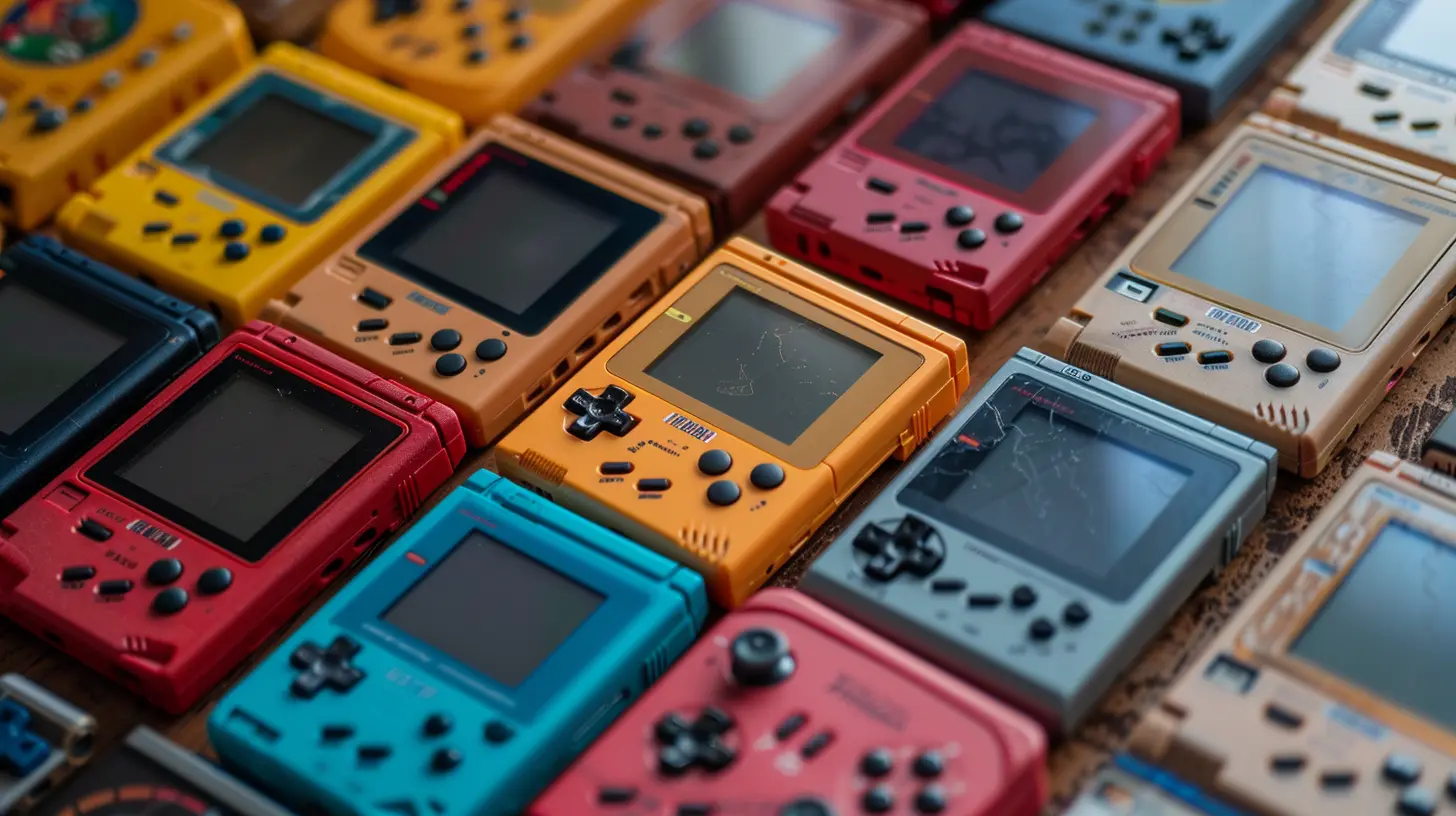
What Makes a Handheld Console "Forgotten"?
Let’s be clear: "forgotten" doesn’t mean “bad.” Some of these devices were technically impressive. Some had incredible games. And some even had features that modern consoles would copy years later! What they lacked, though, was the right moment to strike.Success in the gaming world isn’t just about power or even creativity. It’s a combination of timing, marketing, ecosystem, and a loyal fanbase. Miss any one of those, and even the coolest gadget can find itself in the bargain bin of history.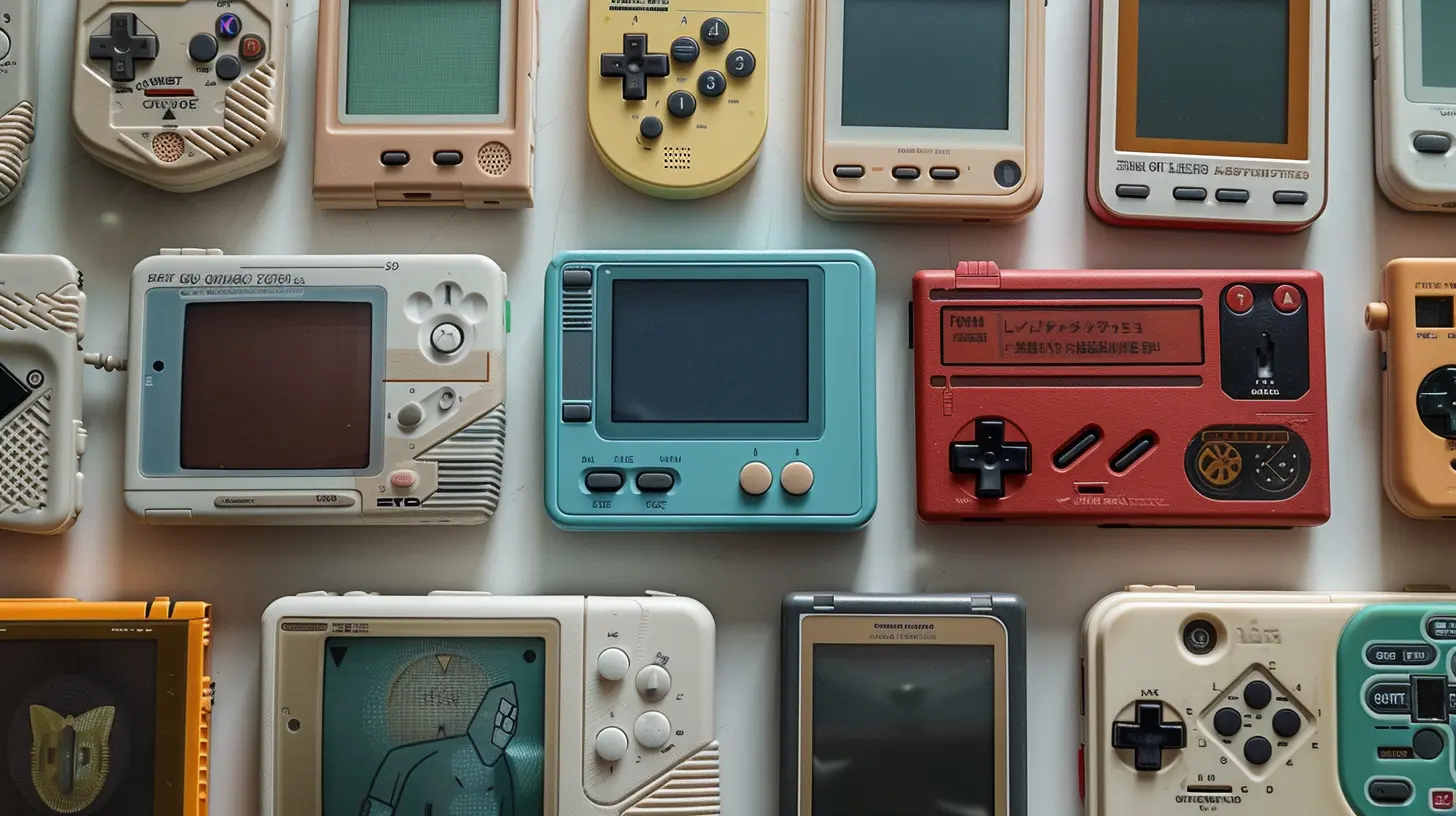
1. Sega Nomad – Ahead of Its Time, Behind in Battery Life
Ever wanted to take your Sega Genesis on the go? In 1995, Sega made that dream real with the Sega Nomad. This bad boy was essentially a portable Genesis. You could literally slot in your home console cartridges and keep playing in the car, on the couch, or under the blankets when you were supposed to be asleep.Why it could’ve changed gaming: Imagine if the concept of cross-compatibility between home and handhelds had caught on earlier. The idea that your handheld device could mirror your home system was revolutionary in the '90s.
What went wrong:
- It devoured six AA batteries in a few short hours.
- It was released late in the Genesis' lifecycle—with Saturn on the horizon.
- It was expensive, bulky, and largely unsupported outside the US.
Still, the Nomad paved a mini-road for what Nintendo would eventually do with the Switch.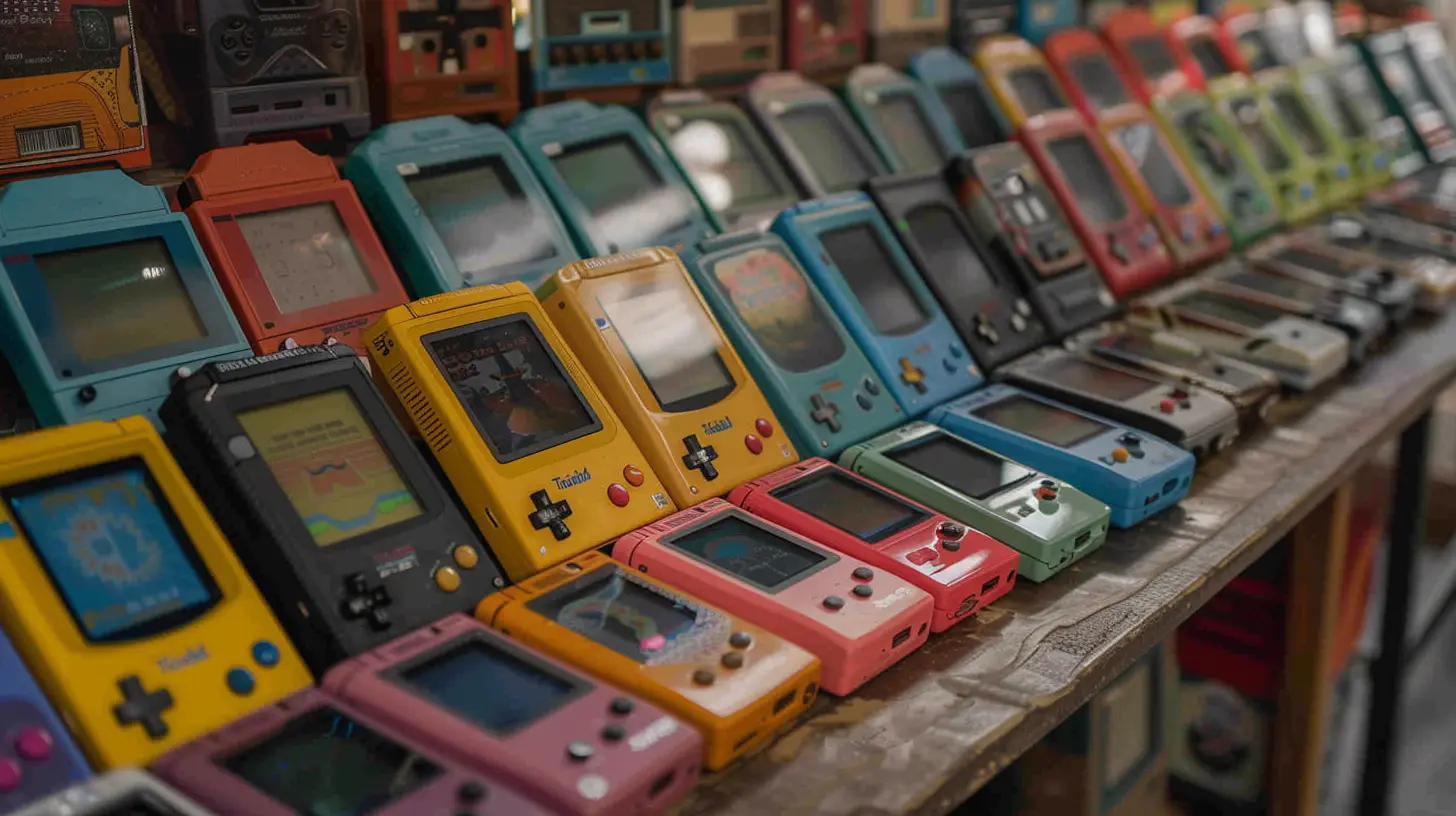
2. Atari Lynx – The Colorful Misfit
Launched in 1989—months before the Game Boy—the Atari Lynx was the first handheld to rock a backlit full-color LCD screen. That alone should've made it the portable king of the playground.Why it could’ve changed gaming: This thing was a technological powerhouse. It even had a nifty ambidextrous design where you could flip the orientation for left-handed players. That’s inclusive design well before its time.
Where it tripped up:
- The battery life was trash: 4-6 hours tops.
- It was bulky and much more expensive than the Game Boy.
- Game library? Meh. Gimmicks don’t matter if the games aren’t fun.
Had it launched with a price tag and size closer to Game Boy, we might still be talking about an Atari handheld ecosystem today. Bold words, right?
3. Neo Geo Pocket Color – The Underdog Fighter
Released by SNK in 1999, the Neo Geo Pocket Color was a slick little device. It had a killer stick-style control nub (seriously, it felt great to use), solid battery life, and some surprisingly deep titles like SNK vs Capcom and Metal Slug.Why it could’ve changed gaming:
- It positioned itself as the fighting game handheld.
- Its link cable let friends battle head-to-head—a precursor to wireless multiplayer.
Downfall? Nintendo. The Game Boy Color had a stranglehold on the market. While SNK had great software, it was overshadowed by Pokémon fever and Mario magic.
Nonetheless, fans today still swear by its quality and charm. It could’ve been the go-to device for arcade fans on the go.
4. Gizmondo – A Cautionary Tech Tale
Here’s where things get wild. The Gizmondo launched in 2005 with all the ambition in the world. It was supposed to be more than just a gaming handheld—it was a GPS, a camera, a messaging device—it was a smartphone before smartphones!But here’s the twist: its parent company, Tiger Telematics, crashed and burned in one of the most bizarre business scandals in tech history. We're talking criminal charges, shady marketing, and a CEO who literally wrecked a Ferrari Enzo during a race.
Why it (sort of) mattered:
- Built-in GPS functionality that tied into game mechanics.
- Multimedia capabilities that were seriously ahead of its time.
Why it flopped:
- Absurdly high price.
- Almost no good games.
- A company run like a bad crime drama.
Today, the Gizmondo serves as a "what not to do" for aspiring tech startups. A cautionary tale wrapped in questionable plastic.
5. Nokia N-Gage – Gaming Meets Phone, Sort Of
Ah yes, the N-Gage. Nokia's attempt to merge a phone and a handheld console into one device didn’t exactly pan out. Launched in 2003 during the mobile boom, the N-Gage had good intentions but laughable execution.Remember side-talking (when you had to hold the phone sideways to talk)? That alone made the N-Gage the butt of every tech joke for years.
Why it could've been big:
- It was one of the first attempts at true mobile gaming—even before smartphones.
- Games like Tomb Raider and Tony Hawk were ported to it.
- It had Bluetooth multiplayer. Seriously, in 2003!
But it crashed because:
- The form factor was terrible.
- You had to remove the battery to change games.
- The game library was small and full of mediocre ports.
N-Gage wasn’t terrible—just misunderstood. It tried to jump the gun on the smartphone-gaming symbiosis. If the market had been just a little more ready, who knows?
6. WonderSwan – Japan’s Hidden Gem
You probably never held a WonderSwan, and I don’t blame you—it never left Japan. Created by Gunpei Yokoi (the genius behind Game Boy), this Bandai-made handheld had serious pedigree.Launched in 1999, the WonderSwan came in monochrome and later color versions. It had a unique vertical/horizontal flip control scheme and a pretty stellar lineup of Japanese RPGs and anime tie-ins.
Why it could have changed gaming:
- It had support from Square Enix (yes, Final Fantasy was on it).
- The dual-orientation controls gave devs flexibility.
- Its ultra-low price and 30-40 hour battery life made it a Game Boy killer on paper.
But... Nintendo still had the market locked down, especially globally. And since it never made it west, WonderSwan quietly bowed out in 2003.
Retro collectors still hunt for these beauties, and a few mods even bring them back to life for modern gamers.
What Could’ve Been: The Ripple Effect of Missed Opportunities
Let’s play the "What If" game for a second.What if Atari Lynx had matched Game Boy’s affordability?
What if Nomad had battery life that lasted longer than an episode of Friends?
What if WonderSwan had launched globally with massive JRPGs?
What if N-Gage was designed for actual human hands?
We might not have gotten the DS, the Switch, or even mobile gaming as we know it today. These forgotten consoles didn’t just fail—they paved the way, showing us what worked and what didn’t. Gamers, developers, and hardware designers all learned from their missteps.
What We Can Learn From These Forgotten Devices
There’s something beautiful about these underdog consoles. They remind us that innovation doesn’t always win right away. Sometimes, you're just a brilliant idea in the wrong decade.Their stories are cautionary tales of marketing misfires, tech ambitions, and corporate drama—but also a celebration of boldness.
Here's the takeaway:
- Timing is everything in tech.
- Good hardware is nothing without good games.
- And sometimes, being first means you’re just early—not successful.
So next time you boot up your Switch or tap your phone screen to launch a game, tip your cap to these trailblazers. They may be forgotten by most, but their legacy quietly lives on in every game you play on the go.
all images in this post were generated using AI tools
Category:
Retro GamesAuthor:

Madeleine McCaffrey
Discussion
rate this article
3 comments
Paxton McKittrick
Ah, the bittersweet symphony of forgotten handhelds! These overlooked gems could’ve reshaped gaming history, but instead, they remained in the shadows. Here's to the what-ifs—may their innovative spirits inspire the next wave of portable play, even if we're late to the party!
June 15, 2025 at 3:53 PM

Madeleine McCaffrey
Thank you! Absolutely, it’s fascinating to think about how these overlooked handhelds could have influenced gaming's evolution. Here's to hoping their innovative ideas spark new creativity in future portable devices!
Fatima McIlwain
Exploring these forgotten handhelds shines a light on the innovation and creativity that fuels gaming. Let’s celebrate the bold ideas that once sparked our imaginations, reminding us that every concept can potentially change the world!
June 8, 2025 at 5:14 PM

Madeleine McCaffrey
Absolutely! These forgotten handhelds showcase the remarkable creativity in gaming history, highlighting how innovative concepts can shape the future. Let's honor those bold ideas!
Maxwell Blevins
Missed gems that could've reshaped gaming history—what a loss!
June 8, 2025 at 4:50 AM

Madeleine McCaffrey
Absolutely! It's fascinating to think about how these overlooked consoles could have transformed the gaming landscape. Their potential is truly a lost opportunity.

